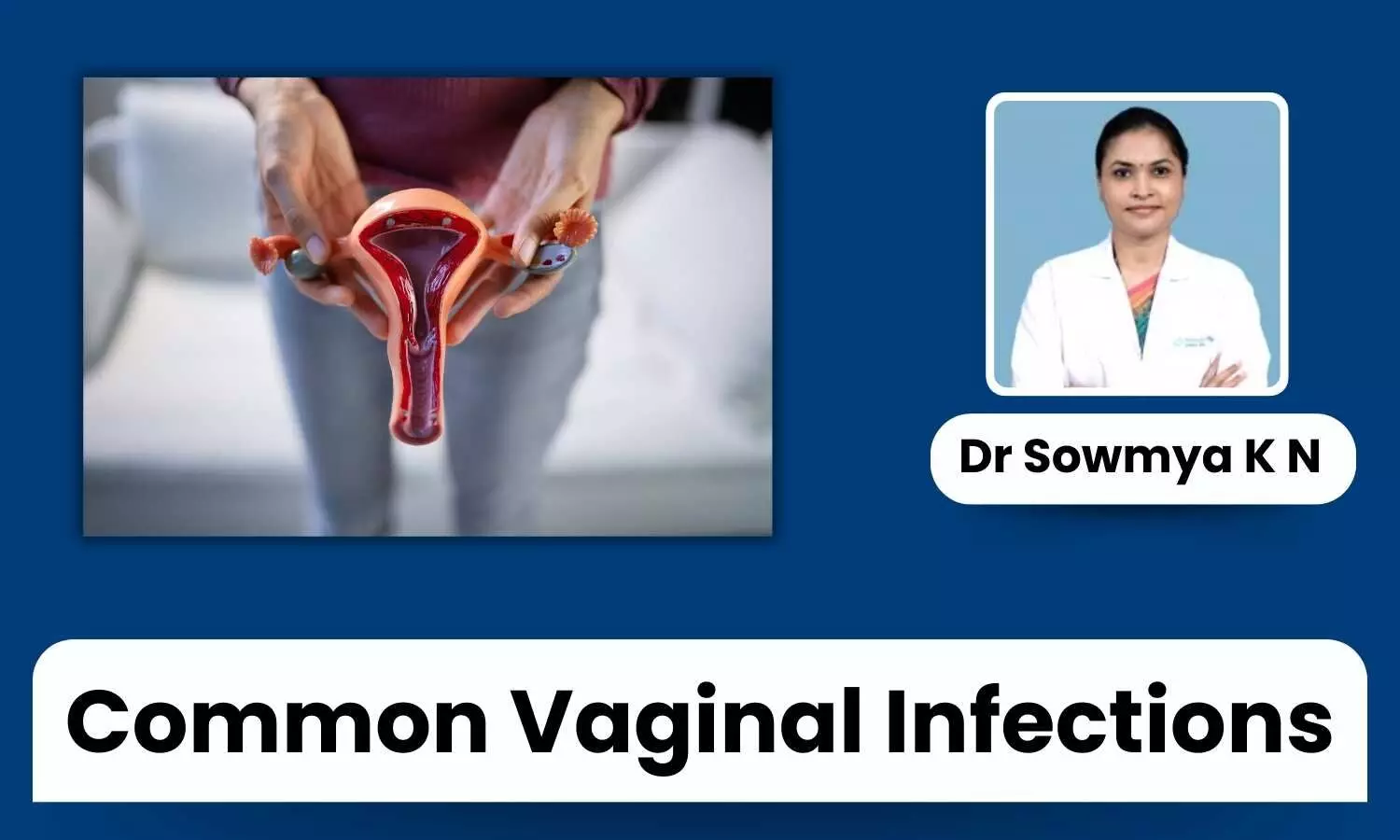Common Vaginal Infections: Symptoms, Causes, and Treatments - Dr Sowmya K N

Vaginal infections, commonly referred to as vaginitis, are a frequent concern for many women, presenting with symptoms that can be both uncomfortable and distressing. These symptoms typically include abnormal vaginal discharge, soreness, itching, and sometimes a foul odour.
Additionally, some women may experience lower abdominal pain, adding to the discomfort. Vaginitis is one of the most common issues seen in outpatient departments (OPD), affecting women of all ages, but particularly those who are sexually active, experiencing hormonal imbalances, or have poor hygiene practices.
Types of Vaginal Infections
The most common types of vaginal infections include candidiasis (fungal infections), bacterial vaginosis, and those associated with sexually transmitted diseases (STDs). Other causes of vaginitis can be atrophic (related to thinning of the vaginal walls), allergic reactions, or even neoplastic conditions (related to abnormal tissue growth).
1. Yeast Infection (Candidiasis)
- Symptoms: Yeast infections are often characterized by intense itching, soreness, and a thick, white discharge that resembles cottage cheese. These infections are most commonly seen in young women, those with altered immune systems, or those who frequently wear tight, non-breathable clothing such as nylon garments. Women with urinary infections may also be more susceptible to yeast infections.
- Causes: The overgrowth of the fungus Candida is the primary cause of this infection. Factors that contribute to its development include a weakened immune system, antibiotic use, high estrogen levels (often seen during pregnancy or hormone therapy), and uncontrolled diabetes.
2. Bacterial Vaginosis
- Symptoms: Unlike yeast infections, bacterial vaginosis (BV) typically does not cause itching. However, women may notice a thin, greyish-white discharge with a fishy odour, particularly after intercourse.
- Causes: BV occurs due to an imbalance in the normal bacterial flora of the vagina, with a reduction in lactobacilli (good bacteria) and an increase in harmful bacteria. This condition is more common in sexually active women and those with multiple sexual partners. Despite appropriate treatment, BV often recurs and may require prolonged or repeated antibiotic therapy to fully resolve.
3. Vaginal Infections Associated with STDs
- Symptoms: Infections caused by STDs, such as chlamydia, gonorrhoea, and trichomoniasis, can cause a variety of symptoms, including abnormal discharge, pelvic pain, and sometimes bleeding between periods. Trichomoniasis, for example, can cause a frothy, yellow-green discharge with a strong odour.
- Causes: These infections are primarily transmitted through sexual contact. It is crucial for both partners to be treated simultaneously to prevent reinfection.
4. Atrophic Vaginitis
- Symptoms: Atrophic vaginitis is common in postmenopausal women and is characterized by dryness, itching, and discomfort during intercourse. The vaginal walls become thinner due to decreased estrogen levels, leading to these symptoms.
- Causes: This condition is primarily related to the natural decrease in estrogen that occurs during menopause, although it can also affect women who have had their ovaries removed or those who are breastfeeding.
5. Allergic Vaginitis
- Symptoms: Allergic reactions in the vaginal area can cause redness, itching, and a burning sensation. These symptoms can be triggered by various irritants such as soaps, detergents, douches, or even certain types of condoms.
- Causes: The use of scented hygiene products, harsh soaps, and other potential allergens can disrupt the natural pH balance of the vagina, leading to irritation and infection.
Treatment Approaches
The treatment of vaginitis depends largely on the underlying cause:
- Yeast Infections: Antifungal medications, available in creams, tablets, or suppositories, are the standard treatment for candidiasis. It’s also important to maintain proper hygiene, avoid tight clothing, and keep the genital area dry.
- Bacterial Vaginosis: Antibiotics are typically prescribed. In recurrent cases, an extended course of antibiotics may be necessary. Women are also advised to avoid douching, which can further disrupt the balance of vaginal bacteria.
- STD-Related Infections: Antibiotics or antivirals are prescribed depending on the specific STD. It is crucial for sexual partners to receive treatment simultaneously to prevent the spread and recurrence of the infection.
- Atrophic Vaginitis: Estrogen therapy, available in the form of creams, tablets, or rings, is often recommended for relief from symptoms. Lubricants and moisturizers can also help manage dryness and discomfort.
- Allergic Vaginitis: Identifying and avoiding the irritant is key to preventing allergic vaginitis. Switching to unscented, gentle products and avoiding known allergens can help reduce symptoms.
Prevention Tips
Preventing vaginal infections requires a combination of good hygiene practices and lifestyle adjustments:
- Practice Safe Sex: Using condoms and ensuring both partners are treated in the case of STDs can significantly reduce the risk of vaginitis.
- Maintain Vaginal pH: Using products designed to maintain an optimal vaginal pH can help prevent infections.
- Wear Breathable Clothing: Opt for cotton underwear and avoid tight-fitting clothes that can trap moisture.
- Hygiene: Avoid the use of scented products in the genital area, and always wipe from front to back after using the restroom to prevent the spread of bacteria.
Vaginitis is a common condition that affects many women, but with proper treatment and preventive measures, it can be managed effectively. Women experiencing symptoms should consult their healthcare provider to determine the exact cause and receive appropriate treatment.


